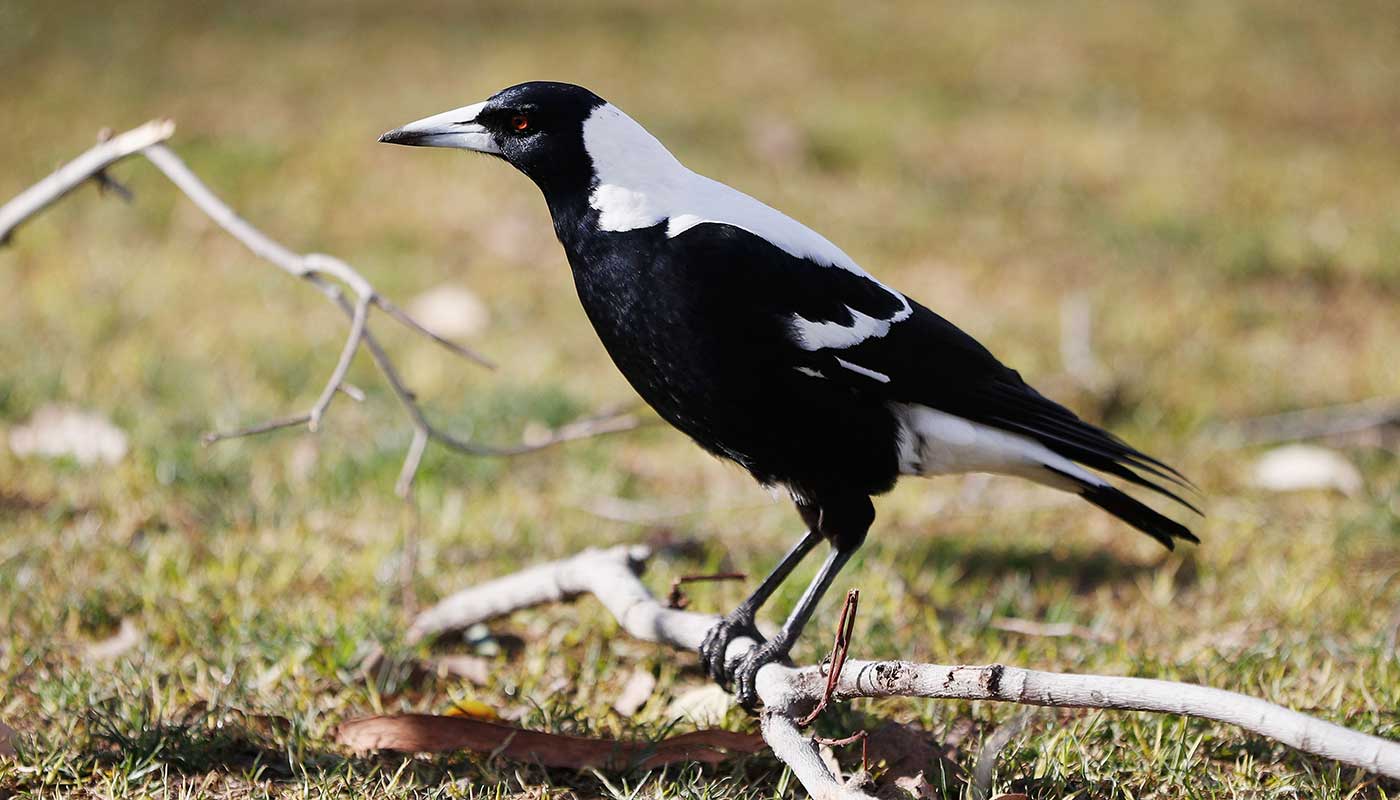Magpies team up to sabotage a study into their cooperation
And other stories from the stranger side of life

A free daily email with the biggest news stories of the day – and the best features from TheWeek.com
You are now subscribed
Your newsletter sign-up was successful
A group of Australian magpies teamed up to sabotage a study into how they co-operate in the wild, said The Times. Researchers fitted the birds with lightweight tracking devices to gather data on their movements and social interactions. But the study was thwarted “within ten minutes” when the birds started to remove the GPS tags from each other. It took only a few hours for most of the trackers to be removed and there were none remaining three days later, said the paper.
‘Miracle’ claim as clock resumes ticking
A church leader in Grimsby was stunned when a centuries-old clock ticked for the first time in five years. “I do not know why or how the clock has started working again,” said churchwarden Christopher Daniel. “It is either divine intervention, or there is a much more mundane reason that none of us is aware of.” The latter proved to be the case, said The Daily Telegraph, as someone carrying out maintenance work had removed two dead birds from the clock’s cogs.
The Week
Escape your echo chamber. Get the facts behind the news, plus analysis from multiple perspectives.

Sign up for The Week's Free Newsletters
From our morning news briefing to a weekly Good News Newsletter, get the best of The Week delivered directly to your inbox.
From our morning news briefing to a weekly Good News Newsletter, get the best of The Week delivered directly to your inbox.
Pepsi launches nitrogen drink
Pepsi is launching a nitrogen-fused cola drink in what it has described as its “most ambitious feat yet”. The “first-of-its-kind” beverage has a “creamier and smoother taste compared to traditional carbonated sodas”, said CNN, which added that the drinks giant “took a page from Guinness’ playbook and added a so-called widget at the bottom of the can”. Nitro Pepsi will be released in the US next month and comes in regular and vanilla flavours.
A free daily email with the biggest news stories of the day – and the best features from TheWeek.com
-
 Political cartoons for February 16
Political cartoons for February 16Cartoons Monday’s political cartoons include President's Day, a valentine from the Epstein files, and more
-
 Regent Hong Kong: a tranquil haven with a prime waterfront spot
Regent Hong Kong: a tranquil haven with a prime waterfront spotThe Week Recommends The trendy hotel recently underwent an extensive two-year revamp
-
 The problem with diagnosing profound autism
The problem with diagnosing profound autismThe Explainer Experts are reconsidering the idea of autism as a spectrum, which could impact diagnoses and policy making for the condition
-
 Epstein files topple law CEO, roil UK government
Epstein files topple law CEO, roil UK governmentSpeed Read Peter Mandelson, Britain’s former ambassador to the US, is caught up in the scandal
-
 Iran and US prepare to meet after skirmishes
Iran and US prepare to meet after skirmishesSpeed Read The incident comes amid heightened tensions in the Middle East
-
 Israel retrieves final hostage’s body from Gaza
Israel retrieves final hostage’s body from GazaSpeed Read The 24-year-old police officer was killed during the initial Hamas attack
-
 China’s Xi targets top general in growing purge
China’s Xi targets top general in growing purgeSpeed Read Zhang Youxia is being investigated over ‘grave violations’ of the law
-
 Panama and Canada are negotiating over a crucial copper mine
Panama and Canada are negotiating over a crucial copper mineIn the Spotlight Panama is set to make a final decision on the mine this summer
-
 Why Greenland’s natural resources are nearly impossible to mine
Why Greenland’s natural resources are nearly impossible to mineThe Explainer The country’s natural landscape makes the task extremely difficult
-
 Iran cuts internet as protests escalate
Iran cuts internet as protests escalateSpeed Reada Government buildings across the country have been set on fire
-
 US nabs ‘shadow’ tanker claimed by Russia
US nabs ‘shadow’ tanker claimed by RussiaSpeed Read The ship was one of two vessels seized by the US military